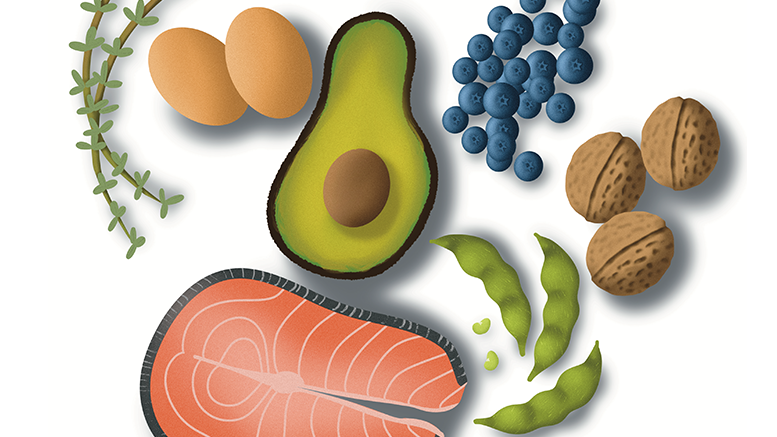According to the Heart and Stroke Foundation, up to 80 per cent of premature heart disease and stroke can be prevented by making healthy life choices. This can include incorporating foods high in nutrients, various fruits and vegetables, fiber-rich beans and peas, and whole grains.
“Food and nutrition is one of the main aspects of our daily life,” said Mohammed Moghadasian, professor in the U of M’s department of food and human nutritional sciences. “Not everybody knows how foods contribute to our wellbeing and everyday body functioning. Therefore, it was very important to me to contribute in our understanding of whole foods and their ingredients.”
Moghadasian’s research career began at the University of British Columbia, where he explored the cardiovascular benefits of phytosterols, natural substances found in fruits, vegetables, whole grains and nuts.
When consumed, phytosterols help control blood cholesterol levels. Cholesterol is a waxy compound in the blood that is used to build cells, protect nerves and make hormones and
vitamins. However, too much of a certain type of cholesterol, sometimes called “bad” cholesterol, can clog arteries and cause heart attacks. Phytosterols lower blood levels of “bad” cholesterol, while having no effect on “good” cholesterol. This reduces the risk of heart disease and strokes.
Following the publication of Moghadasian’s work in a major journal, his team became the first Canadian research group in the field.
“Following this enormous success, we continued to expand our research activities to identify health benefits and the mechanisms of action for other food-derived substances like omega-3 fats,” he said.
The two main types of fatty acids are saturated and unsaturated. They differ in their molecular structure. Saturated fatty acids are linked by only single bonds, giving them a straight chain conformation. This lets the molecules pack tightly together. Because of this, saturated fatty acids tend to be solid at room temperature and are abundant “unhealthy” items like butter. They may increase the risk of heart attacks and strokes.
In contrast, unsaturated fatty acids have a kinked shape due to having at least one double bond. The kinks in the chain prevent the molecules from packing tightly together, and they are generally liquids at room temperature. They can be readily found in “healthy” foods like olive oil. When consumed in moderation, they support heart health.
Omega-3 fats are a type of unsaturated fat. They are a major part of cell membranes and are especially concentrated in the eyes and brain.
Studies show that omega-3s may lower the risk of heart disease, blood clots, certain types of cancer, dementia and sudden death. They are found in green leafy vegetables, seeds, nuts, shellfish and fatty fish such as salmon, cod, herring and trout.
A review article co-authored by Moghadasian looked at the effects of dietary fatty acids, including omega-3 fats, on semen quality. Human sperm characteristically contains high amounts of omega-3 fats, which have a major role in fertilization. It was noted that more than four weeks of omega-3 supplementation improved sperm quality.
Omega-3 fats also have major implications for women’s fertility. A study published in the journal Fertility and Sterility examined900 women attempting to conceive a child and found that those who took omega-3 supplements were almost twice as likely to become pregnant compared to those who did not.
A study co-authored by Moghadasian looked at the health benefits of okra. Okra, sometimes referred to as “lady’s finger” is a flowering plant with green, tube-like seed pods. The okra pods are rich in antioxidants, magnesium, folate and vitamins. They support heart health, benefit pregnant women, lower blood sugar and may have anticancer properties.
Moghadasian’s study examined the effects of okra on diabetic rats. They found that rats who were administered okra had lower levels of cholesterol and fat in their blood. This research adds to an already strong body of literature supporting the importance of okra in the diet.
“My ultimate goal as a researcher would be to basically discover new aspects and components of foods, food products, as well as food waste, towards [improving] our health and wellbeing,” Moghadasian said.



